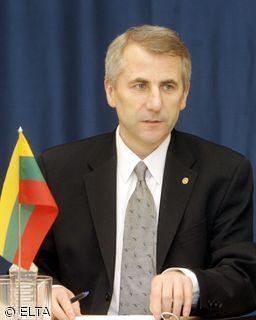OPEC Planning to Maintain Oil Quotas as U.S. Winter Nears
Published:
24 September 2003 y., Wednesday
OPEC, supplier of a third of the world's oil, is planning to maintain output quotas through the end of the year as sabotage limits Iraqi exports and demand rises because of winter from the U.S. to Japan, officials said.
The group meets today in Vienna. Ministers from Saudi Arabia, Iran, Kuwait, the United Arab Emirates, Algeria, Venezuela and Indonesia have signaled no change is needed because prices are within their target of $22 to $28 a barrel.
``OPEC has no immediate need to act,'' said Chris Brown, director of energy consulting at Wood Mackenzie Consultants Ltd. in London. ``We could see a cut in the next two months depending on how more Iraqi oil comes on line. The last thing OPEC wants is a glut forming.''
Crude oil in London has averaged $28.29 a barrel in 2003, $10 more than the 1990s average, boosting income within the Organization of Petroleum Exporting Countries and profit at oil companies such as BP and Exxon Mobil Corp. Prices may fall in 2004 as Iraqi exports and rising output in Russia overwhelm demand, according to a Bloomberg News survey.
Iraqi Oil Minister Ibrahim Mohammad Bahr al-Ulum traveled to Vienna for the gathering, where Venezuela objected to the country's participation in the formal meeting. The minister was appointed with the help of the U.S.-led authority in Baghdad, and Iraq's interim government has yet to be recognized by the United Nations.
Concern is mounting among ministers that prices will decline in 2004, and Algerian and Kuwaiti officials said OPEC may have to assemble again in December. Oil prices have dropped 15 percent in the past month for OPEC's benchmark, to $24.82 a barrel.
Šaltinis:
Bloomberg
Copying, publishing, announcing any information from the News.lt portal without written permission of News.lt editorial office is prohibited.
The most popular articles
 When you fill up your car with petrol you often find that your hand will reek of petrol unless you have worn gloves.
more »
When you fill up your car with petrol you often find that your hand will reek of petrol unless you have worn gloves.
more »
 The EU is going through its worst recession since WWII. Inflation has slowed, but employment and public finances are hard hit. The situation should stabilise in 2010.
more »
The EU is going through its worst recession since WWII. Inflation has slowed, but employment and public finances are hard hit. The situation should stabilise in 2010.
more »
 In the current economic environment, banks should carefully analyze the current and future total cost of ownership of their technology assets, and evaluate the outsourcing alternative.
more »
In the current economic environment, banks should carefully analyze the current and future total cost of ownership of their technology assets, and evaluate the outsourcing alternative.
more »
 Commission proposes first EU law on hedge funds and issues guidelines on bank pay practices.
more »
Commission proposes first EU law on hedge funds and issues guidelines on bank pay practices.
more »
 On 30 April, Lithuania’s Minister of Foreign Affairs Vygaudas Ušackas took part in the round table discussion “The European Union’s External Trade Policy and Lithuania’s Positions: Threats and Possibilities for the Lithuanian Industry”.
more »
On 30 April, Lithuania’s Minister of Foreign Affairs Vygaudas Ušackas took part in the round table discussion “The European Union’s External Trade Policy and Lithuania’s Positions: Threats and Possibilities for the Lithuanian Industry”.
more »
 Since 28 April this year, the clients of AB Bank SNORAS will be able to process their financial matters in a clearer and more user-friendly environment of “Internet Bank+” system.
more »
Since 28 April this year, the clients of AB Bank SNORAS will be able to process their financial matters in a clearer and more user-friendly environment of “Internet Bank+” system.
more »
 2009 ageing report: Europe tackling the challenge of an ageing population but the recession threatens a setback.
more »
2009 ageing report: Europe tackling the challenge of an ageing population but the recession threatens a setback.
more »
 More choice, investment and security of supply lie at the heart of the 3rd energy package.
more »
More choice, investment and security of supply lie at the heart of the 3rd energy package.
more »
 Swine flu, a new strain of influenza, has so far left more than a hundred dead. But in one sector, the illness could have huge benefits.
more »
Swine flu, a new strain of influenza, has so far left more than a hundred dead. But in one sector, the illness could have huge benefits.
more »
 Central European bargain hunters are crossing borders for the best buys. Slovakian shoppers in Hungary are making the most of their new eurozone membership.
more »
Central European bargain hunters are crossing borders for the best buys. Slovakian shoppers in Hungary are making the most of their new eurozone membership.
more »